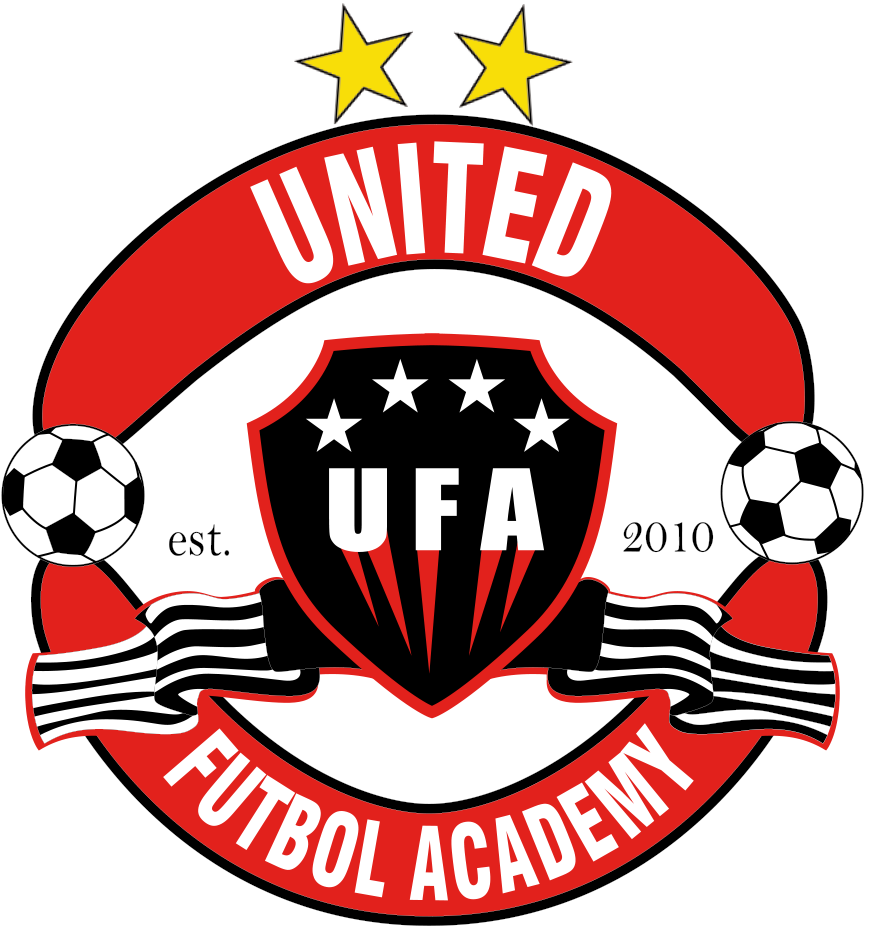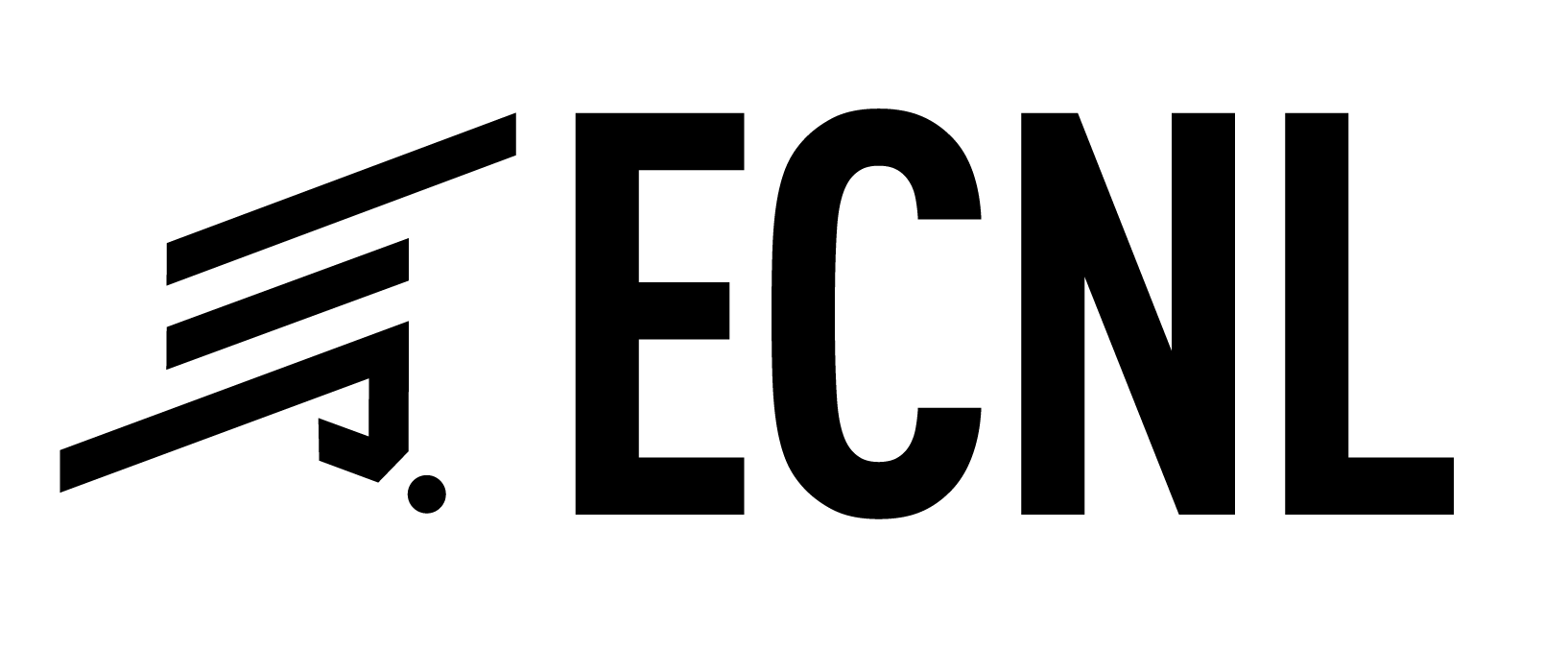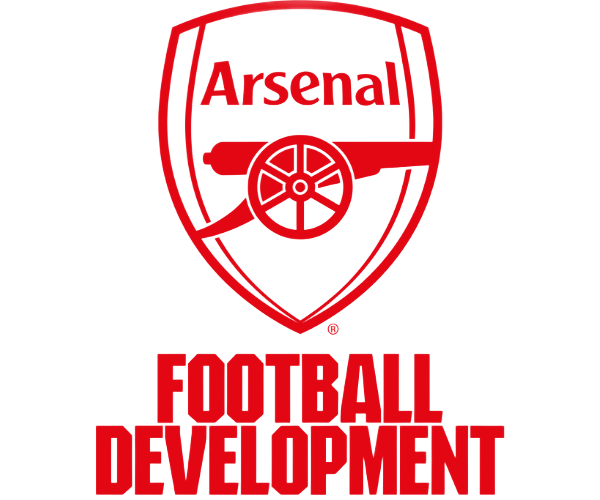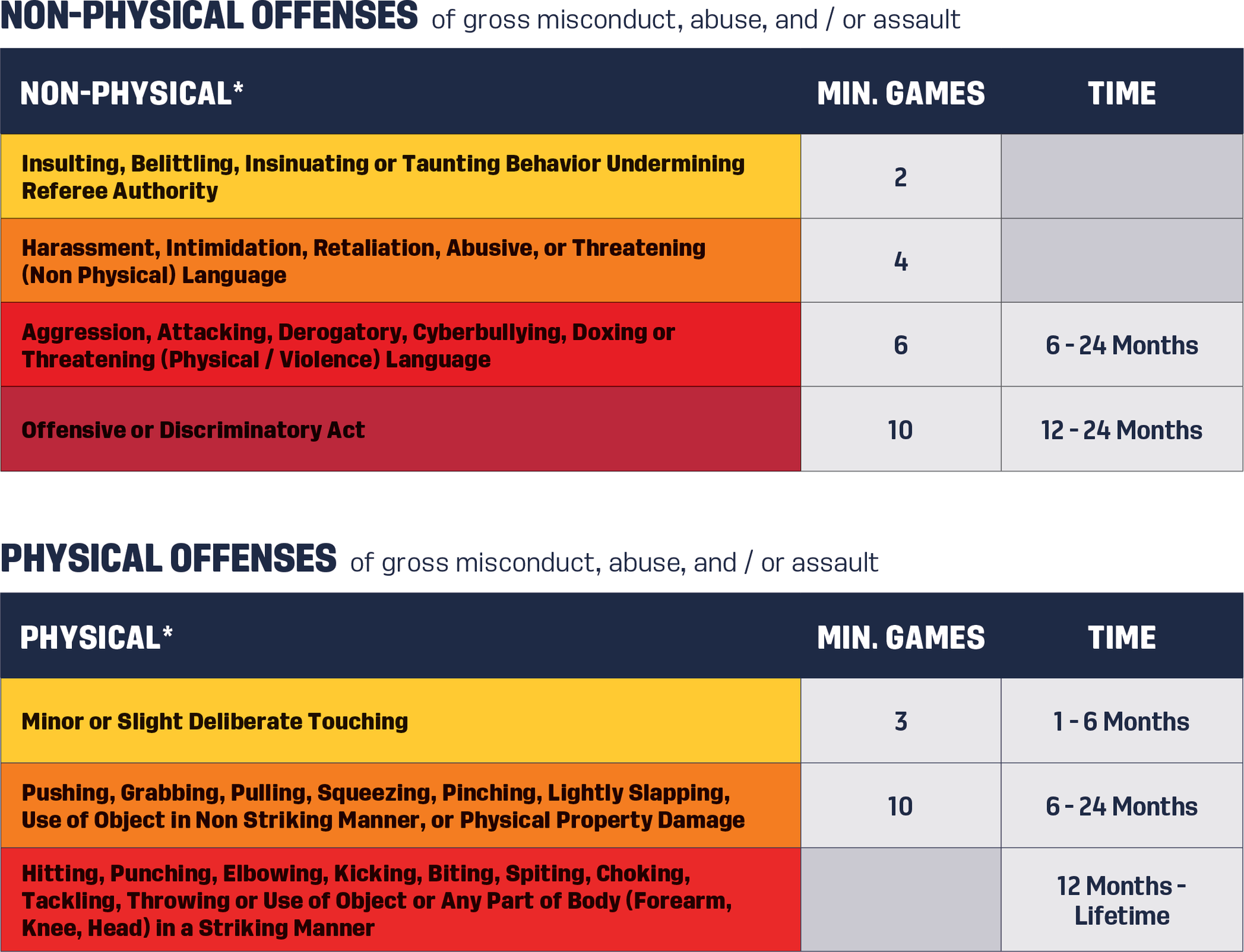Referee Abuse policy
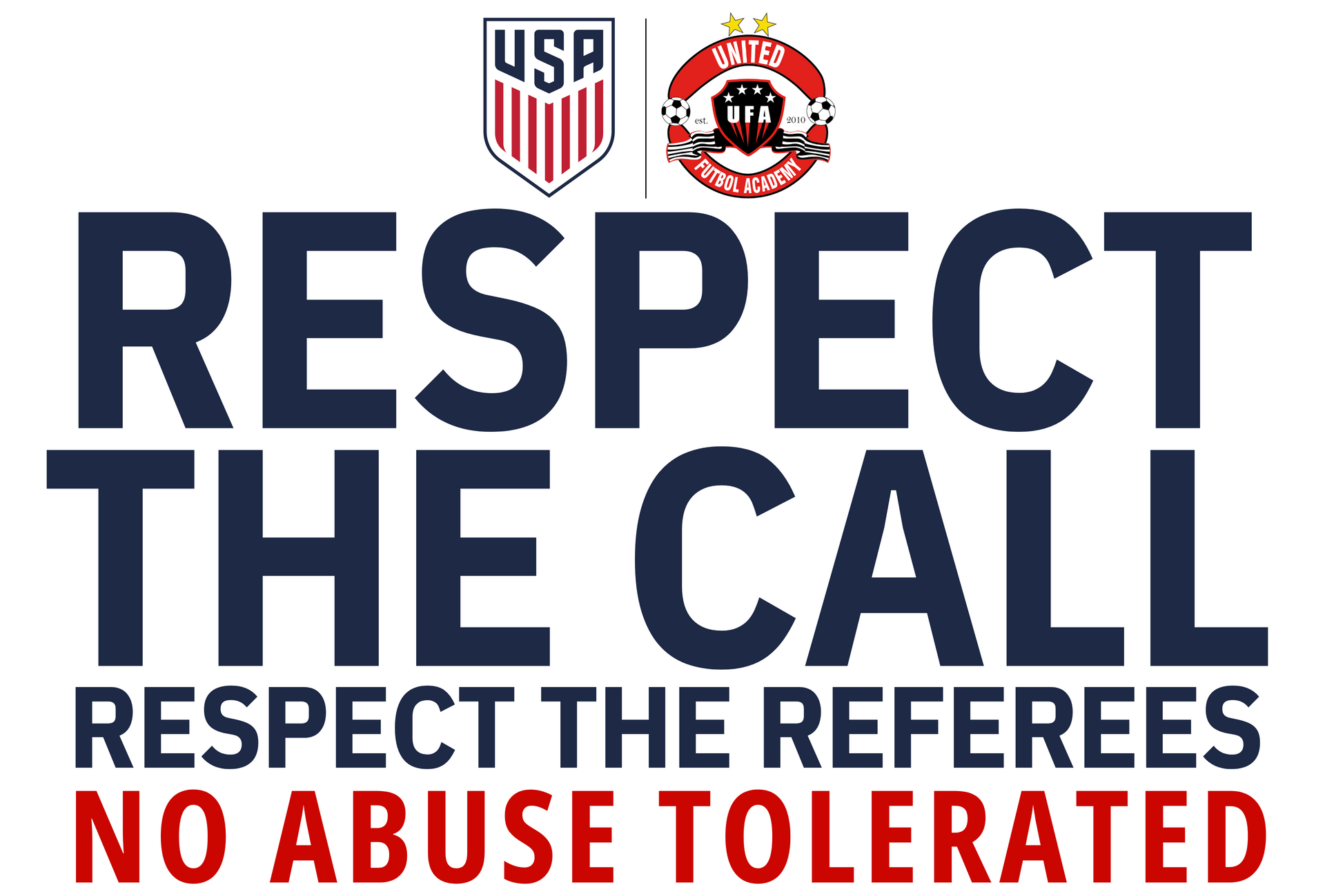
As coaches and parents, we often hold our young referees to an impossible standard, and unfortunately, we feel entitled to voice our criticism, which can quickly turn into abuse. The result? Over 50% of referees leave the field within their first year.
The average age of a youth soccer referee is between 13 and 18. Imagine a teenager, nervous and trying to develop life skills, preparing for adulthood, and learning to work, all while being yelled at for every mistake. And these aren't even your own kids – they’re random young people, doing their best.
Think about trying to teach a child to read. Every time they mispronounce a word, you start yelling at them, calling them out for their mistakes. Or imagine you’re starting a new job, and every single error you make is micromanaged and pointed out on your very first day. Would that feel fair or comfortable? Would you feel respected? This is the environment we’re creating for our youth sports officials. By yelling at referees, we’re normalizing micromanagement, disrespect, and undermining behavior. Is it acceptable to yell at kids we see at the park or school just because they’re making mistakes? Would we consider that abuse? Would you feel okay if your own child were the referee?
Malcolm Gladwell’s research tells us that it takes about 10,000 hours to become an expert in a field. In soccer terms, that’s the equivalent of spending 13 years refereeing (if you worked every single day). We’re asking young refs to be experts and to avoid mistakes within a season or two – an expectation that is simply unrealistic.
That’s why we have mentors who stay with our young refs, providing feedback at halftime and after the game. The goal is to create a safe environment where they can learn not just skills, but confidence, while growing into capable officials. Mentors are also there to handle any major issues or concerns, ensuring a positive and supportive learning environment.
The most helpful thing parents and coaches can do is to educate themselves on the rules of the game. Soccer is a physical sport, and not every fall is a foul, nor is every handball intentional. Referees are providing a valuable service to ensure a safe and fair environment for the youth who are learning the sport. Coaches’ roles are to create an environment for the players to learn to play the beautiful game. The parents’ role is to enjoy watching the kids play and support their development – and the best way to do that is by respecting the referees and leaving them to do their job.
Coaches set the tone for how referees are treated. If a coach were to say, “Nobody talks to the referee. If there’s anything that needs to be addressed, you talk to me,” it would create a respectful atmosphere. We even provide coaches with time to discuss feedback with referees if needed.
Imagine if your coach said, “If you talk to the referee, it will affect your child’s playing time.” Would your behavior toward referees change? There’s a volleyball team in Michigan that implemented a rule: if parents yell or question anything—even the score—their child sits out a set. The club also enforces a policy where parents who abuse officials must pay a $500 fee if the referee identifies them. How many incidents do you think they’ve had since putting this policy in place?
The best way to retain referees is by showing them the two pillars of growth: kindness and patience. If we treat them with respect and understand they need time to develop, we can create an environment that fosters successful, confident officials.
As parents and coaches, we are the role models who shape the environment that helps both players and referees grow. Picture a car with four wheels: one for the players, one for the coaches, one for the parents, and one for the referees. If any of these wheels aren’t working in harmony, the car can’t move forward. Let’s work together to make sure every wheel is turning smoothly, for the sake of the kids and the future of the game.
U.S. Soccer and UFA are committed to providing a safe, respectful environment for all. The bright future of soccer depends on creating a safer, more inclusive environment, where no one ever feels that his or her well-being is at risk.
- 90% of referees report that abuse has increased over the last 5 years
- 60% of referees choose not to recertify due to harassment and threats
- Youth soccer needs referees to grow -- without them, games can't happen
Win, lose, or draw, we’re in this together. When you take your anger out on the referee, everybody loses, and the call on the field still stands.
UFA’S APPROACH: ZERO TOLERANCE
Coaches, Players and Spectators are not to criticize, critique or question the referee during or after the game. Any questions/concerns need to be directed to the mentor/supervisor at the field, the referee assignor, or the program director.
Continuously and repeatedly questioning calls (even if done respectfully) undermines the referee’s authority and can damage the referee’s credibility and this then undermines their ability to effectively officiate the game.
Coaches: Lead by Example. Set the tone for Good Sportsmanship with your players.
Parents & Spectators: Cheer for your team, not against the referee. Help create a positive environment.
Players: Respect your referees, whether you agree with their calls or not.
Referees: Know that your voice matters. Report abuse and keep the game safe.
PLEASE READ THE ENTIRE US SOCCER REFEREE ABUSE POLICY:
Referee Program FAQ
What is the difference between an In-House Referee and a Certified Referee?
An In-House Referee has not been certified with US Soccer but can still be assigned to our in-house recreational games U12 and younger. Young players between the ages of 10 to 15 may participate in this program.
A Certified Referee must be 13 years old and has taken and passed the US Soccer Grass Roots Certification Course and is eligible to be assigned to all game levels.
How do I get certified?
New Referees - Sign Up Here: https://learning.ussoccer.com/referee/courses/available/6/course-info for the Grassroots Referee certification and complete the following THREE (3) steps:
Step #1: Register at the link above and complete ALL online assignments associated with the US Soccer Learning Center Grassroots Referee course. After registering, in the Assignments Tab you will find the following assignments that must be 100% completed BEFORE attending both Step #2 and Step #3:
Online Grassroots Referee Course
Intro to Safe and Healthy Playing Environments
First Time Grassroots Quiz
LOTG Update
If you are 18 years of age or older, you must ALSO complete SafeSport and the NCSI Background Screening
If you are awaiting the NCSI background screening to clear, you may attend the FTE prior to this occurring.
Step #2: Attend the New Referee Field Training Event (FTE) (4 hours). The date and location of the field session are in the course details. If you miss the FTE, you will be transferred to a general holding course in the LC and you will need to attend a different FTE.
Step #3: After completing everything in the Assignments Tab and attending the FTE, you must attend ONE (1) Virtual Zoom session (1 hour) to finalize your certification.
How do I sign up for the UFA Referee Academy In-House Program?
How old do I need to be?
Young players between the ages of 10 and 15 may participate in the In-House Referee Academy Program. Players 13 years old and up should become a Certified Referee.
How do I get assigned?
Once you have received your certification or have attended in-house training, email referee@unitedfa.org for the UFA group link to set up your account and get assigned to games.
What uniform do I need?
UFA In-House Referees will be provided a UFA Referee Academy shirt and will only need to purchase a watch (with stopwatch feature) and a whistle.
If not already included in the State Certification Course, Certified Referees can purchase the official kit from a variety of outlets. We recommend Officialsports.com but they are available on Amazon.com, Refereestore.com and more.
How much will I make?
Referee pay ranges between $25-$100 per game and depending upon certification, position, age group and game level. All fees can be found in the UFA Game Officials account depending upon level and age group. Details can be found in your gameofficials.net account.
How do I get paid?
All payments are handled through the assigning platform, Assignr.com. Please email referee@unitedfa.org for the UFA group link.
Will I be working with other referees or will I be on my own?
All games U12 and younger generally only have one center referee. Occasionally, games will have a center referee and two asst. referees (linesmen).
How many games do I need to work?
You are in control of your schedule. Each week, you will set your availability in Assignr.com and you will be assigned accordingly. This way, you can schedule around your own games and personal plans.
How will I learn what to do? What training or mentoring is offered?
UFA will hold regular training clinics for In-House and Certified Referees. We encourage our referees to attend as many training sessions as possible as they will be able to ask questions and get feedback. Mentors will periodically be available on the weekends to help provide feedback as you continue to learn. We encourage all eligible referees to get certified. Click here for the list of upcoming courses.
What are the rules I need to know?
UFA In-House Referees need to be familiar with Recreational Soccer Rules. Please click here for a link to rules for all leagues.
What happens if I get injured at the field?
If you get hurt and cannot continue the game, please try to arrange the most senior official on your field to take over if you're the center official. Notify your assignor immediately by phone or text. All assignors contact information can be found here.
What do I do if I need to cancel my assignments?
We do expect you to show up and honor your commitment but we understand that things happen. If you find yourself in a position where you need to cancel, please notify us immediately by contacting your assignor directly. All assignors contact information can be found here.
How do I handle unsportsmanlike behavior?
Our training sessions will help prepare you to handle these types of situations with regard to players, coaches and spectators. We strongly encourage you to attend all sessions and ask questions.
What types of opportunities for advancement are there in refereeing?
In addition to becoming certified, UFA mentors and monitors their referees to identify those individuals who would be candidates to participate in higher level leagues, academies, Olympic Development Program (ODP), even at the high school, college and professional levels.
Questions?
